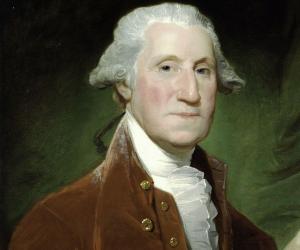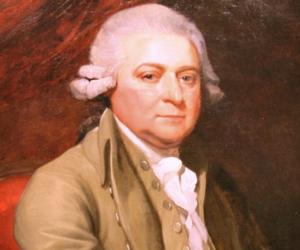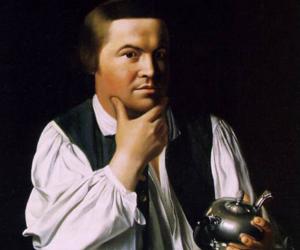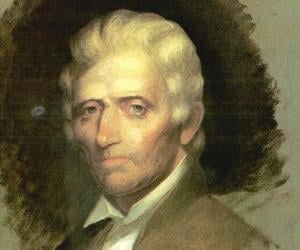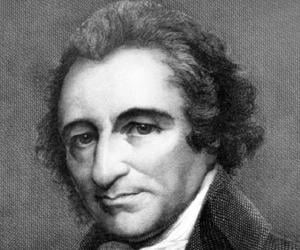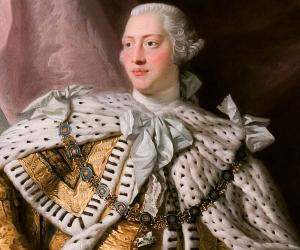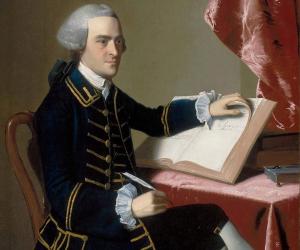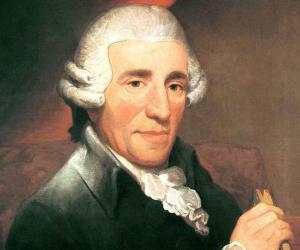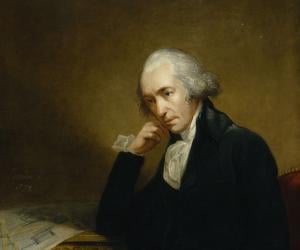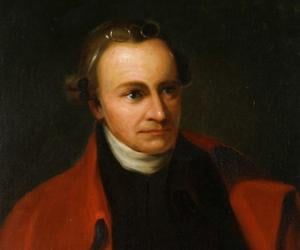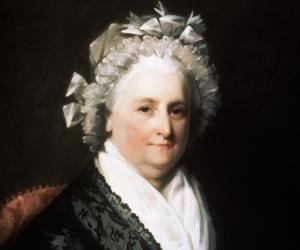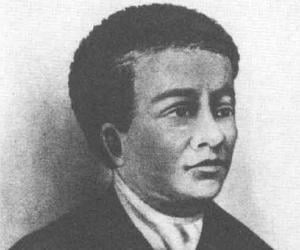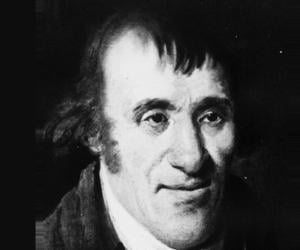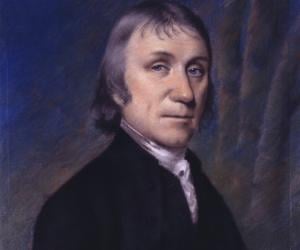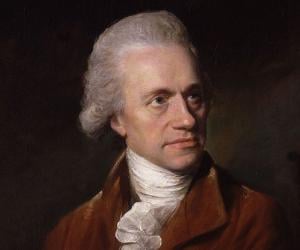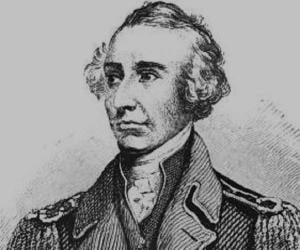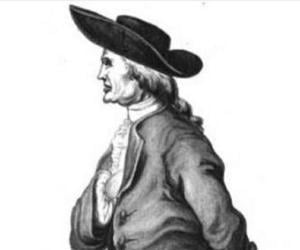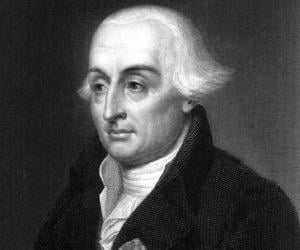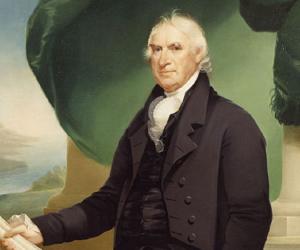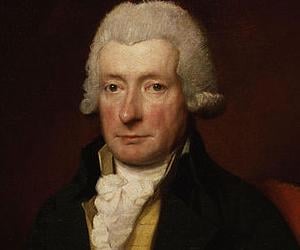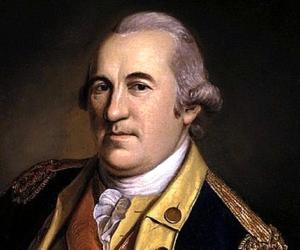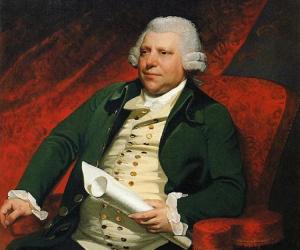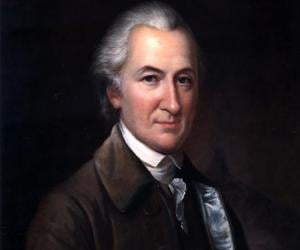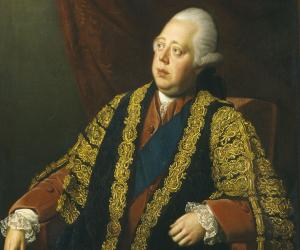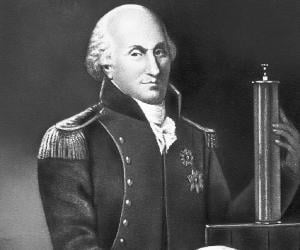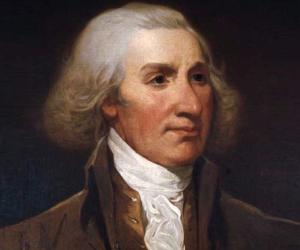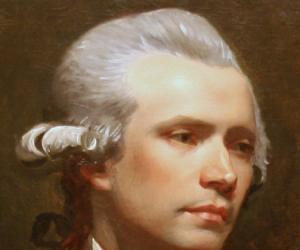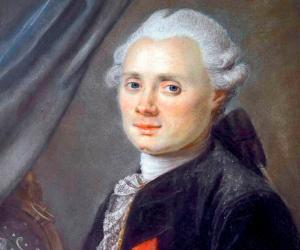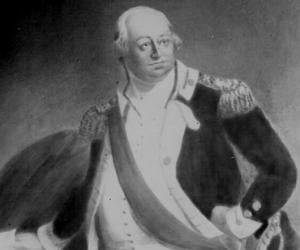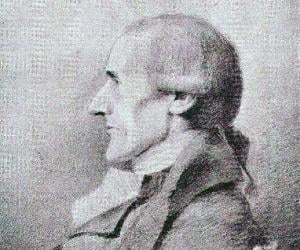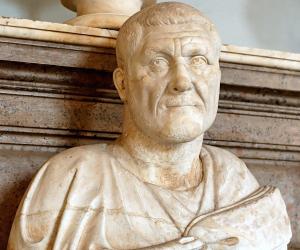America’s first president, George Washington led the country with integrity, firmness and prudence that made him one of the greatest presidents in American history. He became a national hero before assuming presidency, when he led the Continental Army to victory against the British during the American Revolution.
One of the Founding Fathers of America, John Adams was a statesman, attorney, and diplomat who served as the second president of the United States. He was a principal leader of the American Revolution. As a lawyer, he was devoted to the right to counsel and presumption of innocence. His administration has been favorably ranked by historians and scholars.
Daniel Boone was an American pioneer, woodsman, explorer, and frontiersman. His exploits as an American frontier made him one of the earliest folk heroes of the US. Widely regarded as the founder of Kentucky, Daniel Boone is popular for his exploration and settlement of Kentucky. His life and work have inspired several movies, such as the 1936 movie Daniel Boone.
English-born American political activist, philosopher, and revolutionary, Thomas Paine, is credited to have penned some of the most influential pamphlets at the start of the American Revolution. His works inspired the common people of America and motivated them to fight for independence from British rule. He was ostracized for criticizing Christianity and died a lonely man.
The King of the United Kingdom of Great Britain and Ireland for almost six decades, George III had a reign that was longer than those of any of his predecessors. His reign was marked by a series of military conflicts. He suffered from mental illness in his later years.
Merchant and statesman, John Hancock, served as the president of the Second Continental Congress and was the first to sign the Declaration of Independence in 1776, owing to this position. A rich man, he used his wealth to support the colonial cause during the American Revolution. He also used his influence to ratify the United States Constitution in 1788.
Joseph Haydn was an Austrian composer who played a key role in the progression of chamber music during the Classical period. He is often referred to as the Father of the String Quartet and Father of the Symphony for his contributions to musical form. Joseph Haydn is also credited with mentoring and tutoring Mozart and Beethoven, respectively.
A significant figure of the American Revolution, Patrick Henry was the first governor of post-colonial Virginia. A skilled orator, he is remembered for his iconic words “Give me liberty or give me death!” He excelled as a lawyer and gained fame with his win in the Parson's Cause.
Martha Washington became the inaugural First Lady of the United States when her husband George Washington took office as the first President of the United States in 1789. She was the daughter of a wealthy man and was first married to Daniel Parke Custis, with whom she had four children. Following Custis’ death, she married George Washington.
Benjamin Banneker was born to a free African-American mother and a former slave father, and was largely self-educated. While he showed immense talent in both mathematics and astronomy, having predicted a solar eclipse with precision, he also wrote essays on civil rights and rallied against slavery.
As a child, Ethan Allen was fond of deciphering passages from the Bible. He grew up to co-establish Vermont and led the Green Mountain Boys during the American Revolutionary War. After failing to achieve Vermont’s separation from New York, he tried to unite Vermont with Canada.
Best remembered for his contribution to the chemistry of gases, Joseph Priestley was an English scientist, clergyman, political theorist and educator, who has been credited with discovering oxygen independently, publishing his findings before Carl Wilhelm could. A prolific writer, he has authored 150 works on various subjects including electricity. He also contributed immensely to the advancement of political and religious thoughts.
William Herschel was a German-born British astronomer and composer. He pioneered the use of astronomical spectrophotometry and discovered infrared radiation. Impressed by his work, King George III appointed him the Court Astronomer. Herschel often collaborated with his sister, Caroline Lucretia Herschel, a fellow astronomer. In 1816, he was made a Knight of the Royal Guelphic Order.
English natural philosopher, scientist, and a prominent experimental and theoretical physicist and chemist Henry Cavendish is best-remembered for his discovery of hydrogen and his Cavendish experiment. He first recognized that hydrogen, which he termed inflammable air, is a discrete substance which produces water on combustion. He conducted the Cavendish experiment to measure and produce a value for Earth’s density.
Joseph Louis Lagrange was an Italian mathematician and astronomer who made significant contributions to the fields of number theory, analysis, and both classical and celestial mechanics. He served as the director of mathematics at the Prussian Academy of Sciences in Berlin for over 20 years. He later moved to France and became a member of the French Academy of Sciences.
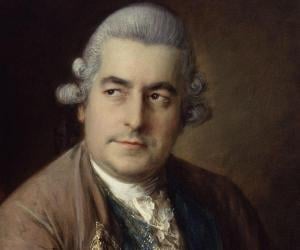
George Clinton is one of the pioneers of funk music. He initially released multiple hits with the collective Parliament-Funkadelic and then launched a solo career with the album Computer Games and the singles Loopzilla and Atomic Dog. He has also lent his voice to the TV movie Freaknik: The Musical.
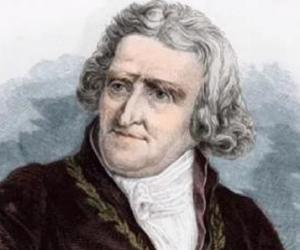
While in prison, in the aftermath of the Seven Years’ War, army pharmacist Antoine-Augustin Parmentier was forced to eat potatoes, which were considered fit only for prison ration and animal feed back then. Parmentier later persuaded the Paris Faculty of Medicine to declare potatoes edible and popularized them in France.
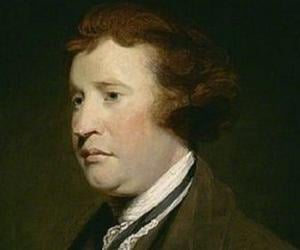
Initially a wig-maker, Richard Arkwright later grew an interest in the spinning mechanism, building the Arkwright’s water frame, which used water power to produce cotton yarn. He soon became a name to reckon with in the textile industry, with many mills to his name. He was knighted for his feats.
French physicist Charles Augustin De Coulomb, remembered for laying down the Coulomb’s law, had previously been a military engineer in the West Indies. At the onset of the French Revolution, Coulomb, struggling with failing health, devoted himself to research. The unit of electric charge, coulomb, was named after him.
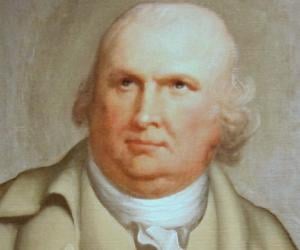
Robert Morris was an English-born merchant best remembered as one of the Founding Fathers of the United States. He was also one of the signers of the United States Constitution, the Articles of Confederation, and the Declaration of Independence. From 1789 to 1795, Robert Morris served as the United States Senator from Pennsylvania.
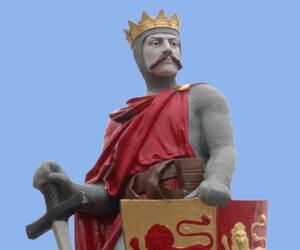
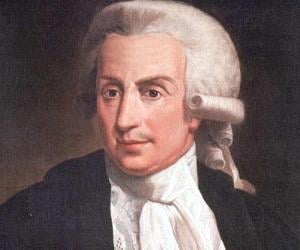
Luigi Galvani was an Italian physician, biologist, physicist, and philosopher. He is credited with the discovery of animal electricity and is considered a pioneer of bioelectromagnetics. He and his wife made one of the first forays into the study of bioelectricity when they discovered that the muscles of dead frogs' legs twitched when struck by an electrical spark.
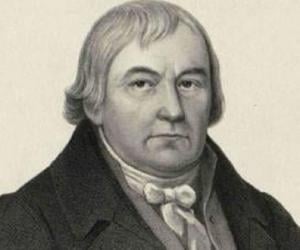
Though a doctor, Franz Mesmer studied the influence of astronomical bodies on the human body and on an invisible fluid inside it. He was a pioneer of animal magnetism, or mesmerism, which paved the path for modern-day hypnotism. Critics slammed his ideas and called him a fraud, too.
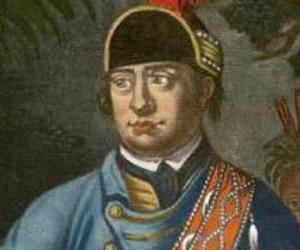
Robert Rogers was a British soldier who served during the American Revolution and the French and Indian War. Rogers is remembered for raising and commanding the popular Rogers' Rangers during the French and Indian War. In 1992, he was inducted into the United States Army Ranger Hall of Fame. Robert Rogers’ heroics are depicted in the 1940 film Northwest Passage.
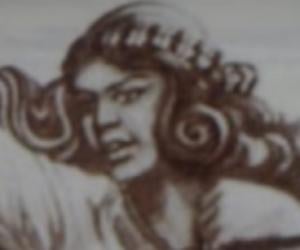
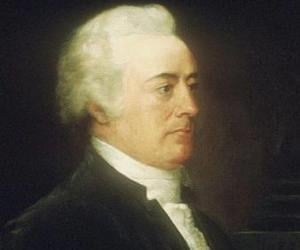
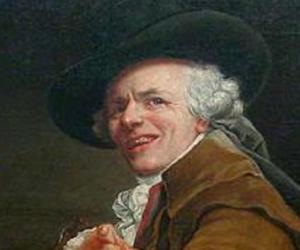
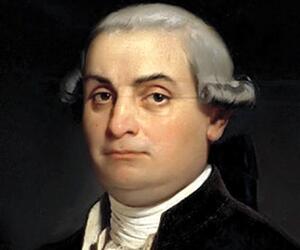
Cesare Beccaria was an 18th-century Italian criminologist, philosopher, jurist, and politician. He is widely regarded as one of the greatest thinkers of the Age of Enlightenment. He is still remembered for his treatise On Crimes and Punishments (1764), a pioneering work in the field of penology. He is considered the father of modern criminal law.
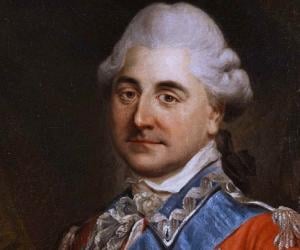
Stanisław August Poniatowski reigned as the King of Poland from 1764 to 1795. He is best remembered as the last ruler of the Polish-Lithuanian Commonwealth. Poniatowski made several attempts to reform and strengthen the ailing Commonwealth, which proved to be difficult due to several external and internal oppositions. He is often criticized for his failure to prevent the partitions.
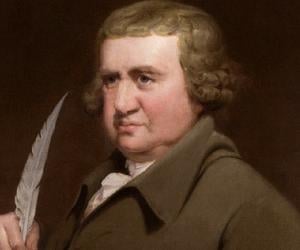
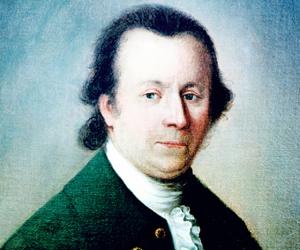
French astronomer Charles Messier is remembered for his pioneering tabulation of nebulae, making it easier to differentiate between nebulae and comets. King Louis XV name him The Comet Ferret. He was drawn to astronomy when he witnessed a solar eclipse and the great six-tailed comet in childhood.
Part of the Continental Army during the American Revolution, Benjamin Lincoln had worked on his family farm before joining the army. After he and his 7,000 men surrendered in Charleston, he was freed in a prisoner exchange program and later became the lieutenant governor of Massachusetts.
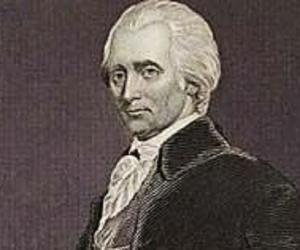
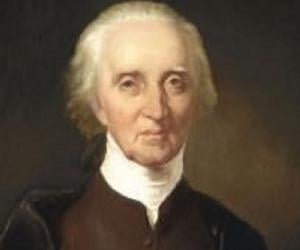
Granville Sharp was an activist who became one of the first English campaigners to support abolitionism in the UK. Sharp devised a plan to settle people in slavery and black people in Sierra Leone. He also established the St George's Bay Company and is thus considered a founding father of Sierra Leone. Sharp also worked towards correcting other social injustices.
Maximinus Thrax reigned as Roman emperor from 235 until his death in 238. The accession of Maximinus is generally viewed as the beginning of the Imperial Crisis. Hence, he is often called a barracks emperor of the 3rd century. He died during the Siege of Aquileia when he was assassinated by soldiers of the Legio II Parthica.

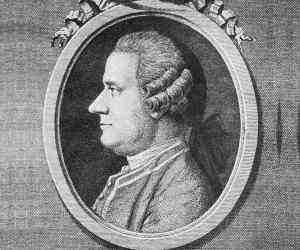
The man who discovered photosynthesis, Jan Ingenhousz was born in the Netherlands but later settled in England. He is also remembered for his pioneering research on thermal conduction and the prevention of smallpox and even successfully inoculated the Habsburg family against smallpox. He was also Maria Theresa’s personal doctor.
